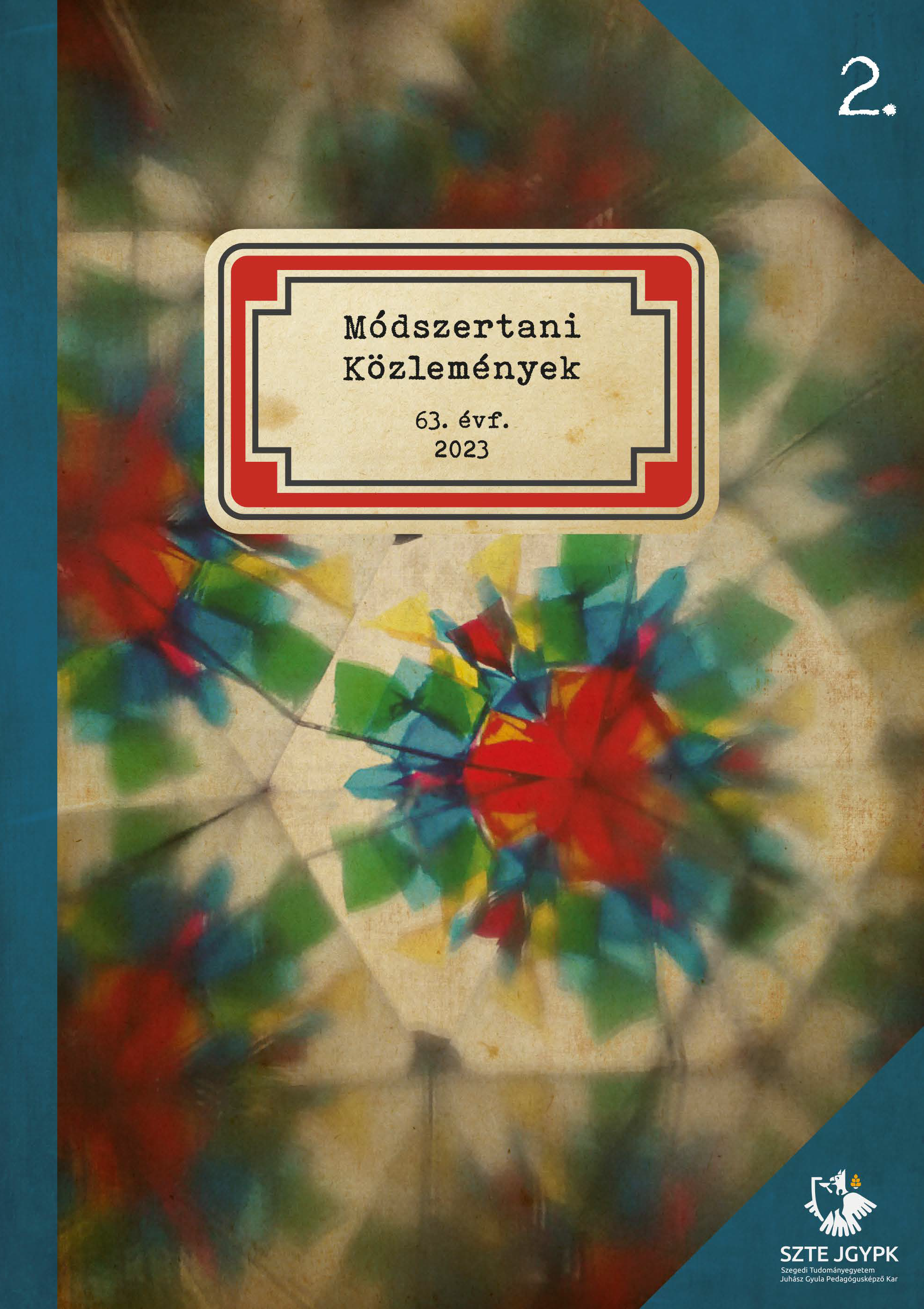Experience-based learning - or models and games in the education of history and science subjects based on ability development
Main Article Content
Abstract
The development of the perception of time and space, as well as the development of abstract concepts, play a significant role in the higher education of students with learning disabilities. The learning of history and natural science subjects is one of the most difficult areas for students with special educational needs, so it is also a challenging task for the special education teacher to make the contents of the curriculum visual and to support learning. In my writing, I use student works to show examples of development opportunities in different areas of orientation, education based.
Article Details
References
Csapó Benő (2003): A képességek fejlődése és iskolai fejlesztése. Akadémiai Kiadó, Budapest. http://www.staff.u-szeged.hu/~csapo/kftart.html (2023.03.20.)
Csapó Benő és Szabó Gábor (2012): Tartalmi keretek a természettudomány diagnosztikus értékeléséhez. https://pedagogus.edia.hu/sites/default/files/termeszettudomany_tartalmi_keretek. pdf (2023.03.22.)
Csíkszentmihályi Mihály (2013): Az öröm művészete. Flow a mindennapokban. Libri Könyvkiadó, Budapest.
Fazekasné Fenyvesi Margit (2009): Az orientációs képesség fejlesztése. Főiskolai jegyzet. https:// www.studocu.com/hu/document/szegedi-tudomanyegyetem/gyogypedagogiai-alapismeretek/ jegyzet-az-orientacios-kepesseg-fejlesztese/2349361 (2023.03.17.)
Hart, R. A. és Moore, G. T. (1973): The Development of Spatial Cognition: A Review. In: R. M. Downs és D. Stea (szerk.): Image & environment: Cognitive mapping and spatial behavior. AldineTransaction. 246–288.
Gyarmathy Éva (2007): Diszlexia. Specifikus tanítási zavar. Lélekben Otthon Kiadó, Budapest.
Kolb, D. A. (1984): Experiential Education: Experience as the Source of Learning. PrenticeHall, New Jersey. Makádi Mariann, Radnóti Katalin,
Róka András és Victor András (2015): A természetismeret tanítása és tanulása. https://edit.elte.hu/xmlui/handle/10831/74952 (2023.03.18.)
Mesterházi Zsuzsa és Szekeres Ágota (2019, szerk.): A nehezen tanuló gyerekek iskolai nevelése. Eötvös Loránd Tudományegyetem, Bárczi Gusztáv Gyógypedagógiai Kar, Budapest.
Molnár Katalin (2016): Élményalapú környezeti nevelés. http://publicatio.uni-sopron. hu/771/1/06_Molnar_Katalin_u.pdf (2023.03.22.)
Papp-Szabó Zsuzsanna (2022): Tanulásban akadályozott tanulóknak a természettudományos tantárgyak tanítása játékok felhasználásával. Szakdolgozat. SZTE JGYPK Gyógypedagógus- képző Intézet, Szeged.
Pethő Éva (1983): Válogatás Carl Rogers műveiből. In: Szekeres Józsefné, Polgár Zsuzsanna és Sarlós Katalin: Pszichológiai tanácsadás a pályaválasztásban. Módszertani füzetek. 27. kötet. Országos Pedagógiai Intézet, Budapest.

